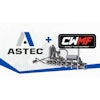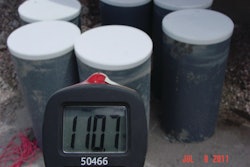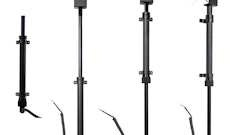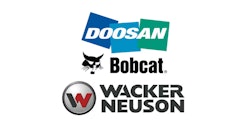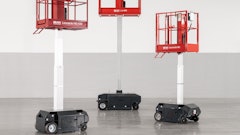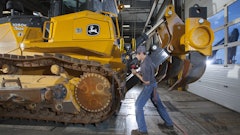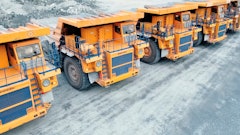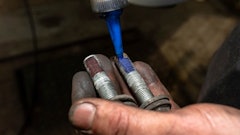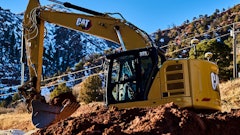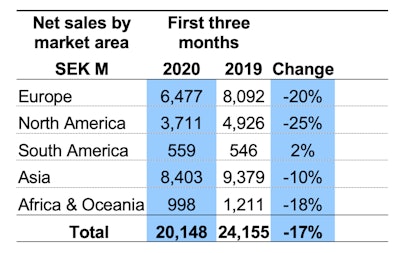
The rapid deterioration of global demand caused by measures in society to contain the spread of the Coronavirus had a negative impact on Volvo Construction Equipment’s (Volvo CE) first quarter 2020 financial results, with sales, profitability, deliveries and orders all showing reversals during the period.
During the first three months of 2020, Volvo CE saw net sales decrease by 17% to SEK 20,148 M (SEK 24,155 M in Q1 2019). At SEK 2,678 M operating income also slipped, down from SEK 3,646 M in the same period of 2019. Earnings were impacted by lower machine volumes and an unfavorable machine mix. This was reflected in the operating margin, which at 13.3% was slightly down vs. the 15.1% in the same period the year before.
Order intake decreased by 7% in Q1 2020, although demand in China – the world’s biggest market for construction equipment – increased toward the end of the quarter. Deliveries were down, by 13%, to 20,170 machines, compared to 23,139 machines in Q1 2019.
The major global construction equipment markets of Europe and North America were both down in the first quarter, declining 1% and 2% respectively in the first two months of the year. In Asia (not including China) demand was down by 4% compared to the same period last year. The impact of the Covid-19 virus was more pronounced in China, which fell 44% during the period, due to market disruption. China did see a rebound in March, with demand up 2% compared to the same month in 2019, thanks to government stimulus measures aimed at boosting infrastructure development.
“The measures to stop the spread of the Covid-19 pandemic began affecting our operations in China in February, and had a severe impact in mid-March, when our global supply chain was disrupted and production halted in most parts of our operations,” commented Volvo CE’s president Melker Jernberg. “It is clear that we are now entering a tough period, with both production stops and low demand having a negative impact on our profitability. That said, we take confidence in the fact that our customers are active in businesses that are important to society, and that our products and services are vital in building sustainable infrastructure for the future.”

